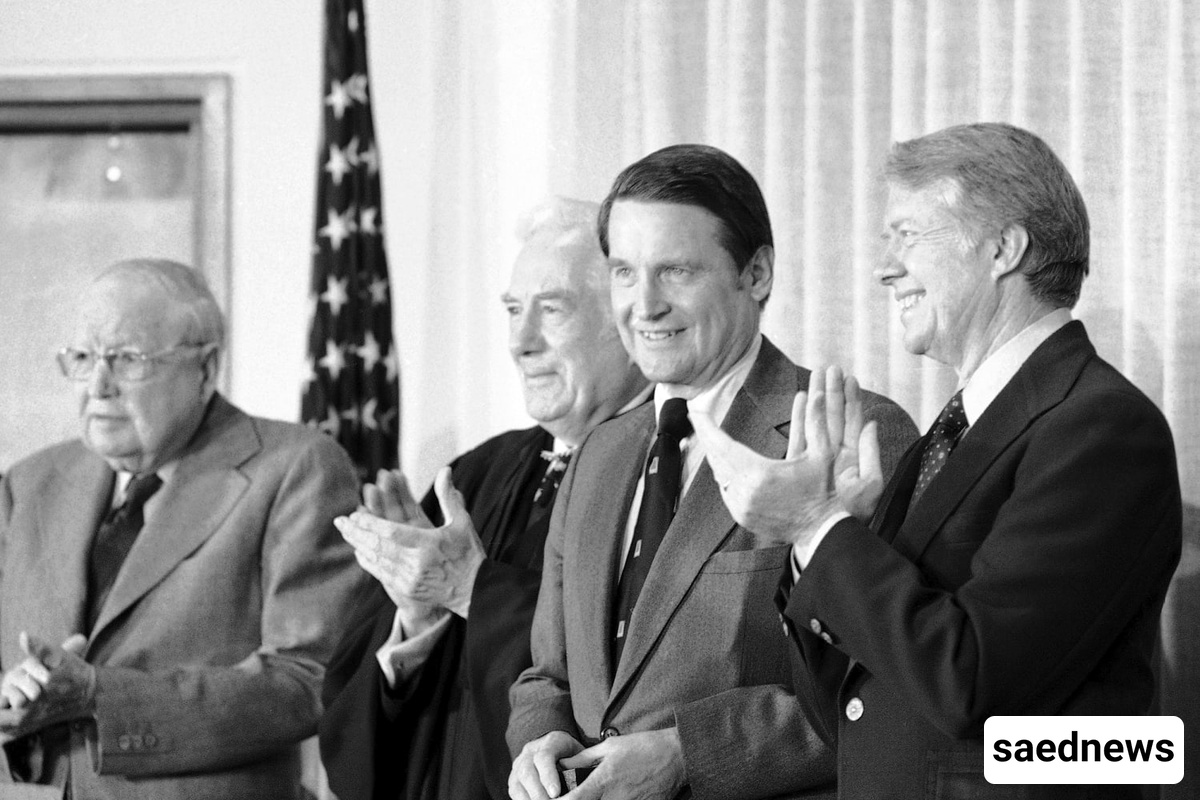SAEDNEWS: William H. Webster who was the only person in the country's history to have served as director of both the Federal Bureau of Investigation (FBI) and the Central Intelligence Agency (CIA), has died at the age of 101; a figure whose career reflected decades of political and security developments in the United States.

According to Saed News, quoting Russia Today, the United States has lost one of its most prominent judicial and security figures of the last century. William H. Webster, who gained historic recognition for simultaneously leading two of the country's most important and powerful intelligence and law enforcement agencies, passed away at the age of 101. This combination of responsibilities was unprecedented in U.S. history and made him a symbol of full trust by top officials in his managerial and professional capabilities.
Before reaching the highest levels of security, Webster had a successful career in the judiciary. He served as a district court judge and later as a federal appellate judge. His precise legal perspective and balanced approach to sensitive cases eventually led him to become the FBI director in 1978. During his tenure, which coincided with the Cold War, he faced challenges such as countering Soviet espionage, domestic terrorism, and the expansion of organized crime.

Leading the FBI at that time required balancing national security with the protection of civil liberties—an issue Webster was particularly attentive to due to his judicial background. He worked to enhance technical and operational capacities while improving internal oversight and accountability standards. This approach helped to somewhat restore the FBI’s public image after previous turbulent periods.
In 1987, Webster reached another career peak: becoming the director of the CIA. His appointment followed the Iran-Contra scandal and was a sign of the then-government’s desire to restore credibility and cohesion to the agency. Drawing on his experience at the FBI and in the judiciary, Webster was tasked with strengthening the agency’s oversight and disciplinary frameworks and repairing its relations with Congress and other government sectors.
His tenure at the CIA coincided with major global changes: the gradual collapse of the Eastern Bloc, a reduction in Cold War ideological tensions, and a shift in the nature of security threats. During this period, Webster sought to expand the CIA’s focus beyond simply countering the Soviet Union to a broader range of security challenges—from the proliferation of weapons of mass destruction to international terrorism.
However, critics considered some of his policies and decisions overly cautious, arguing that the CIA sometimes reacted slowly to crises under his leadership. Supporters, on the other hand, believe that the calm and steady management he brought to the agency was essential for rebuilding both internal and external trust.
After stepping down as CIA director in 1991, Webster remained active in public life, serving on national security and legal advisory commissions and councils. Until late in his life, he spoke on issues such as cybersecurity, emerging threats, and the importance of maintaining a balance between civil liberties and national security.
His long life and unprecedented career reflect important chapters in contemporary U.S. history—from Cold War tensions and superpower rivalry to post-Cold War security transformations. Webster’s leadership of both of America’s key security agencies was a rare and challenging experience that attracted both admiration and criticism.
Reactions to his death in Washington were widespread. The current directors of the CIA and FBI issued separate statements honoring Webster’s service to national security and his commitment to the rule of law. Meanwhile, some civil rights activists noted that his era marked the beginning of deep discussions on intelligence oversight and protecting individual freedoms—issues that remain central to political and legal debates in the United States today.
Now, with the closing of William H. Webster’s life chapter, U.S. national security history concludes one of its most important eras; a story blending legal discipline, cautious politics, and presence at the most sensitive crossroads of intelligence and security power worldwide. His legacy—both praised and criticized—will continue to be studied and debated.

